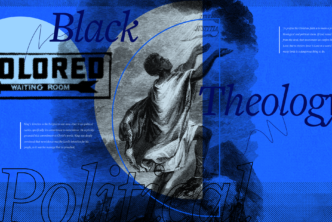Stoicism, a school of Hellenistic thought founded in the third century BC and popular through AD 529, was more than a philosophy—it was a way of life. In this scope as a worldview, it was, writes Paul Tillich, “the only real alternative to Christianity in the Western world.”
But, fascinatingly, Stoicism shared more than scope with Christianity. It came to many of the same conclusions about how to think and live.
Who were the Stoics?
Beginning with Zeno of Citium, the Stoics located happiness not in goods or success but in virtue alone; they emphasized self-control as the path beyond destructive emotions. This self-control took the form of:
Meditation
The Stoics would, visualizing their personal futures, imagine the worst possible outcomes—not as distant, unlikely events, but as present sufferings. They sought to realize that even the worst misfortunes can be survived and are not worth fearing.
Training
They practiced rigorous physical discipline, from sexual abstinence to hard exercise to the avoidance of tempting foods.
Self-vigilance
They monitored their thoughts and emotions, seeking to avoid lust, greed, and ambition in favor of reason.
Seneca and Epictetus argued that a properly practicing Stoic was, in a sense, beyond misfortune. The Faithlife Study Bible’s article on Paul and the Stoics notes, “Stoics believed that the ideal sage was one who could face calamity and misfortune with casual indifference, feeling neither sorrow nor regret. Stoics were proud of their ability to endure hardships and often paraded their fortitude and strength through ‘hardship catalogs,’ which listed the adversities they had endured.” (It’s that serene indifference to misfortune that colors our modern sense of stoic.)
Similar notions of the self
If contemplation, discipline, and vigilance sound familiar, it’s because the early church and Stoicism were in so many ways alike. Both were characterized by:
An emphasis on hardship
As the FSB points out, Paul’s letters also feature “hardship catalogs”—for example, 2 Cor. 4:8–9 and 6:9–10. And, like the Stoics, Paul believed that enduring hardships leads to growth in character: he writes, “we rejoice in our sufferings, knowing that suffering produces endurance, and endurance produces character” (Rom. 5:3–5; cf. 1 Cor. 9:24–27).
A sense of man’s depravity, and a constant self-examination
Like the early Christians, the Stoics regarded humanity’s natural state, with its lust, ambition, and other impulses, as deeply flawed. Both worldviews focused on the observation of self and the suppression of wrong thought.
An inner freedom from the world
Adherents to both worldviews lived apart from the world’s shortcomings and hardships. The early Christians looked with hope to the world that is to come; the Stoics reminded themselves that all is predetermined and that misfortune is illusory.
An aversion to excess
Since the Stoics and the Christians both regarded greed as wrong thinking, they shared a distaste for material excess. For the Stoics, mere wealth wasn’t bad—it simply wasn’t good. “Wealth consists not in having great possessions,” said Epictetus, “but in having few wants.”
Differing notions of the divine
But, though Stoicism shared much with Christianity, it differed profoundly in its account of the divine. For the Stoics, the universe was “a vast quasi-rational being with intelligence and will” (FSB), whose animating force they called (what else?) logos. They didn’t believe in the afterlife; they did believe that the universe would end and then repeat itself.
(You’ll notice that the Stoic outlook far anticipated cosmologies we regard as modern. The notion of God as the universe’s totality reappeared with Spinoza and, famously, Einstein; eternal recurrence was taken up by Nietzsche and Schopenhauer.)
Of course, Christianity’s and Stoicism’s distinct understandings of divinity entailed differing ways of life. Sharyn Dowd, in Reading Mark, notes that:
The Stoics . . . were also determinists; they believed that everything that happened was caused by the universal divine logos that pervaded and controlled all nature and human life. Therefore, the Stoics did not believe in petitionary prayer. People should accept the life circumstances decreed for them by the divine and not seek to change those circumstances in any way. (Emphasis added)
Even the Christian ascetics, so like the Stoics in their emphasis on discipline and their distaste for worldly excess, operated within different spheres and worked toward different goals:
- For the Stoics, the work of self-examination was largely private. For the early Christian ascetics, penance and self-examination were deeply public, instantiated in professions of faith and confessions.
- The Stoics sought self-control in order to master the self. The ascetics sought self-control in order to renounce the self.
- For the Stoics, dependence on the world was to be replaced by dependence on oneself—”The wise person,” taught Seneca, “is self-sufficient.” Paul, in contrast, taught that Christians are profoundly dependent on God (FSB).
- For the Stoics, love was at best suspect, toxic to self-sufficiency. For Paul and the early Christians, love was everything (FSB).
But despite these key differences, the parallels between Stoicism and Christianity—an emphasis on hardship, an understanding of humanity as innately flawed, a vigilant self-examination, an inner freedom, an aversion to excess—are remarkable.
* * *
Stoicism was the immediate context within which early Christianity flourished—the great alternative in terms of scope as a worldview, the status quo that the church rejected in radical ways. To know the one is to better know the other.
Keep learning about Stoicism and Greco-Roman context—Get Stoics of the Roman Era Collection or Lives of Eminent Philosophers today.




